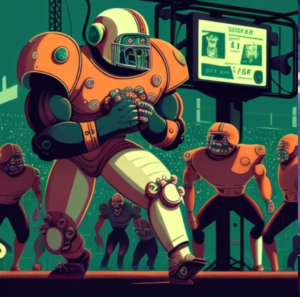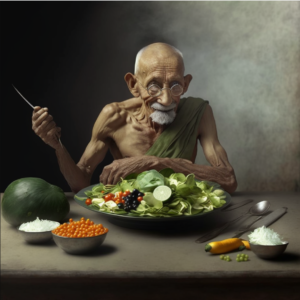P&C drink and review a homebrewed stout, and along with special guest John Wayne Jew discuss how diversity, equity, and inclusion don’t mean what you think they mean, or what they should mean.
They start with an effort to find the good things in DEI. But they don’t get very far.
DEI is a social and moral catastrophe. It hides behind words that sound virtuous and pleasant, but it twists and distorts those words into something unrecognizable.
“Diversity” only applies to a very narrow range of issues: race, sex, and who you fancy. There’s no effort to have diversity of opinion, of religious views, or personality traits, or any of the thousands of ways that humans can be distinguished.
“Equity” is a classic bait and switch. Americans all believe in equality of opportunity, but equity means equality of outcome, which is a horrible mess. “Equity” justifies letting people out of jail because of their race, irrespective of whether they’re guilty.
There’s something similar with “inclusion.” The DEI proponents are only interested in including certain groups and certain ideas. They don’t want to include conservatives.
 P&C drink and review
P&C drink and review  The boys drink and review Crowhill’s Henry IV homebrew, then discuss possible causes of the recent uptick in gender confusion.
The boys drink and review Crowhill’s Henry IV homebrew, then discuss possible causes of the recent uptick in gender confusion.  The boys drink and review a chai latte stout from
The boys drink and review a chai latte stout from  The boys drink and review
The boys drink and review  The boys drink and review Delicious IPA from Stone, then discuss skills they wish they had learned.
The boys drink and review Delicious IPA from Stone, then discuss skills they wish they had learned.  The boys drink and review
The boys drink and review  The boys drink and review Erdinger’s Weissbier Dunkel, then discuss developments in artificial intelligence.
The boys drink and review Erdinger’s Weissbier Dunkel, then discuss developments in artificial intelligence.  The boys drink and review Pigweed’s latest robust porter, then welcome John Wayne Jew to the show to help review “this month in woke.”
The boys drink and review Pigweed’s latest robust porter, then welcome John Wayne Jew to the show to help review “this month in woke.”  With special guest Longinus (a vegetarian), the boys drink and review a small beer, following a recipe from George Washington, then discuss vegetarianism.
With special guest Longinus (a vegetarian), the boys drink and review a small beer, following a recipe from George Washington, then discuss vegetarianism.  Along with special guest Longinus, the boys drink and review Beam Me up, Stouty (a coconut stout) from Saugatuck Brewing, then discuss “One Day in the Life of Ivan Denisovich.”
Along with special guest Longinus, the boys drink and review Beam Me up, Stouty (a coconut stout) from Saugatuck Brewing, then discuss “One Day in the Life of Ivan Denisovich.”